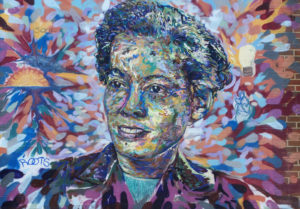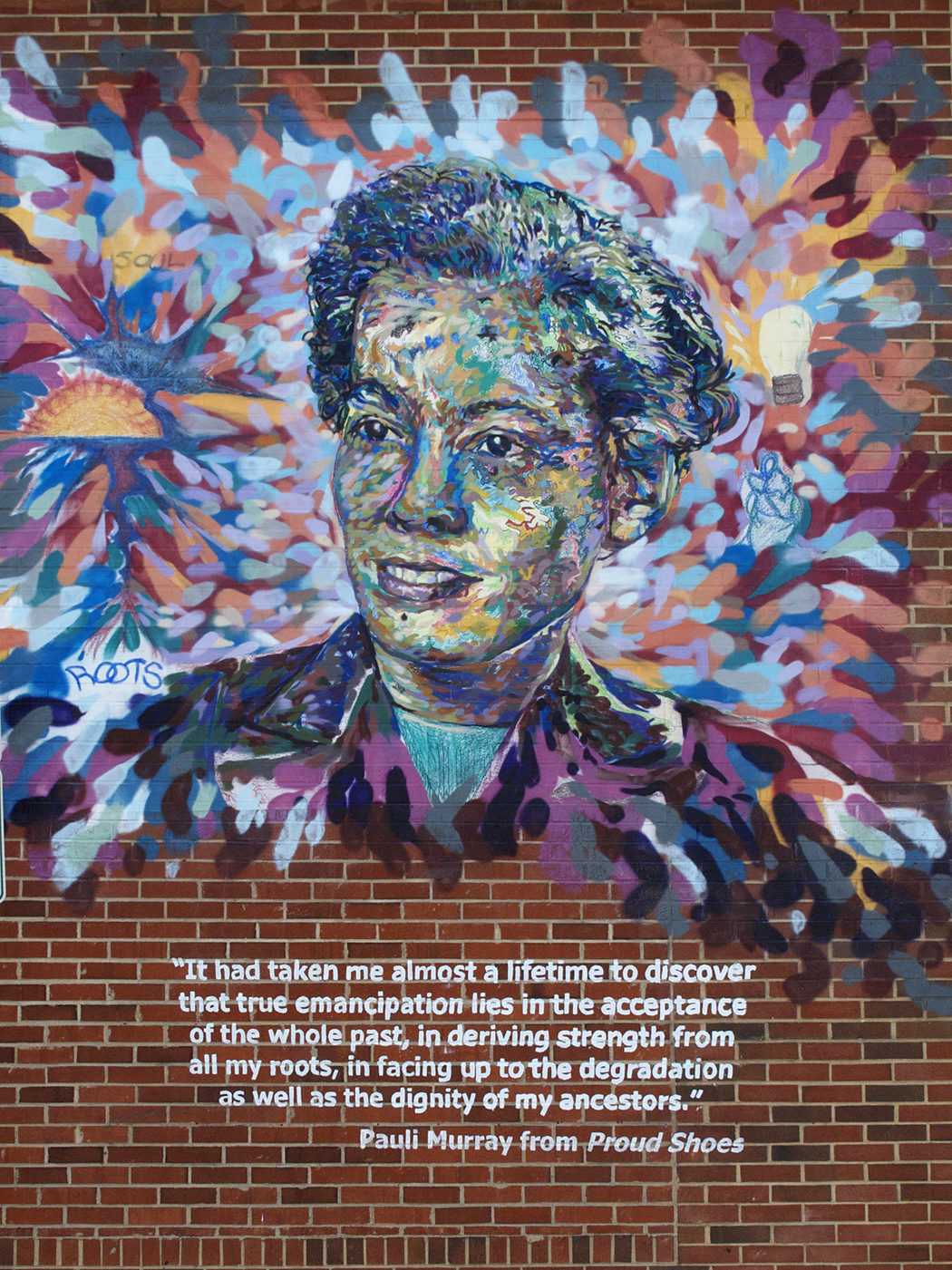 By: Morghan Phillips, Research Assistant at the Pauli Murray Project at Duke University’s Franklin Humanities Institute
By: Morghan Phillips, Research Assistant at the Pauli Murray Project at Duke University’s Franklin Humanities Institute
I am not a patient person, especially when it comes to social change. I hate waiting and I’m not a big fan of compromise.
When I was introduced to the work of Pauli Murray in my Introduction to Cultural Anthropology class, I was excited to find someone that shared my sense of restlessness. And yet I could not help but wonder why it took me so long to find out about her.
Pauli Murray was a Black, queer, gender non-conforming lawyer, poet, Episcopal priest and activist. She was not willing to wait for progress to simply trickle down and better her life. Nor was she willing to compromise her identity for the comfort of others. She did not listen to those who insisted that her identities were too complicated to be addressed immediately. In her own words, “And since, as a human being, I cannot allow myself to be fragmented into Negro at one time, woman at another, or worker at another, I must find a unifying principle in all these movements to which I can adhere. . . This, it seems to me, is not only good politics but also may be the price of survival.”
In the Black community, we have historically prioritized the fight against racism. And while this is incredibly important, singling out racism often leads us to neglect other equally pressing issues. On the individual level, our complexities may be overlooked in favor of an identity defined exclusively by Blackness. On a larger scale, we may not be attuned to the fact that racial oppression does not exempt us from having other privileged identities which are capable of perpetuating harm. These issues of inclusivity and accountability are ones that have surpassed generations. They are not just things that we deal with today, but concerns that Murray articulated decades ago.
Never fitting into a single category, Pauli was an in-betweener. She broke the unspoken rules of activism by investing her time and energy in multiple causes, from the Congress of Racial Equality (CORE) to the National Organization of Women (NOW) and beyond. In doing this, she had the courage to speak her truth concerning the injustice that she faced from within supposedly like-minded activist communities. In August of 1963, she wrote to A. Philip Randolph at CORE to express that she had “been increasingly perturbed over the blatant disparity between the major role which Negro women have played and are playing in the crucial grass-roots levels of our struggle and the minor role of leadership they have been assigned in the national policy-making decisions.” Experiences like these led Murray to coin the term “Jane Crow” to describe the dual forces of racism and sexism.
Pauli Murray’s work allows me to be proud of my Black skin, and to embrace the painful yet rich history and experiences that come along with it. But more than that, I can be equally proud of my womanhood, my Jamaican heritage and the intricacies that make me unique. Pauli’s spirit empowers me to speak up for myself when pressured to compromise part(s) of my identity. By sharing her story far and wide, we begin the work of amplifying voices that have previously been silenced.
There is no hope for justice without intersectionality. Through Pauli’s teachings I am becoming aware of the ways in which my sexuality, socioeconomic status, and education, among other things, may privilege me in comparison to some of my peers. Being cognizant of our own privileges is the first step toward making space for the marginalized. We continue Pauli’s work when we fearlessly commit to acknowledging problems within our own communities. I wholeheartedly believe that this is the only way for us to build a world in which we respect and support one another. To close with Pauli’s wise words, “True emancipation lies in the acceptance of the whole past, in deriving strength from all my roots, in facing up to the degradation as well as the dignity of my ancestors.” We cannot heal until we face these truths.

There are no comments
Add yours